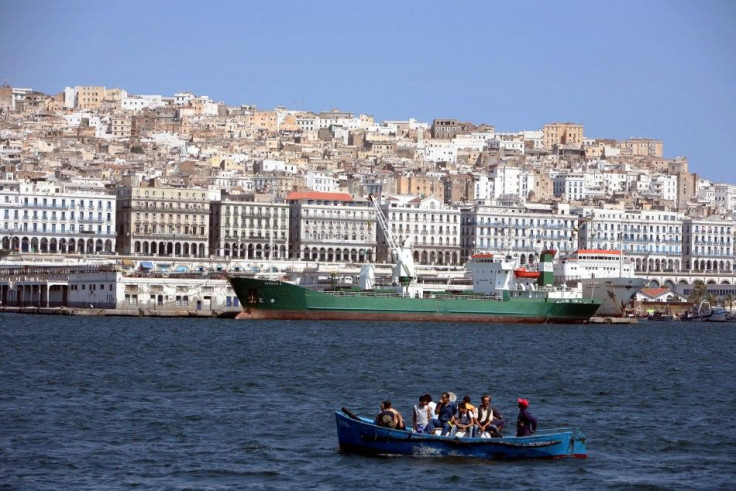Economy Trumps Apology As France Admits To Algerian Massacres

Recognition of the atrocities committed against the people of Algeria by French forces has been a long time coming, but French President Francois Hollande finally broke his country’s silence during a visit to the North African country this week.
He stopped short of an official apology, which Algerian President Abdelaziz Bouteflika has been demanding since 2003. But at this point, the people of Algeria seem willing to let it slide.
More than half a century has passed since a series of bloody atrocities took place during the years leading up to Algerian independence in 1962. Until that time, the country was a department of France, but Muslim Arabs and Berbers there were largely disenfranchised. Even when they gained the right to vote in 1944, unjust district mapping practices made sure they would remain unable to exercise their fair share of political power.
The worst of the bloodshed began in 1945, when French troops responded brutally to a spate of uprisings, killing tens of thousands. The official war for Algerian independence didn’t begin until 1954, and hundreds of thousands (the exact figure is widely disputed) lost their lives during the following six years of combat. About 100 Algerians were also killed in Paris in 1961.
“For 132 years, what Algeria was subjected to was profoundly brutal and unfair,” said Hollande in a speech to Algerian lawmakers on Wednesday. “That system had a name: colonialism. And I recognize here the suffering that colonialism inflicted on the Algerian people.”
In years past, Bouteflika has been adamant about securing an apology from French officials. He was especially curt with former French President Nicolas Sarkozy, once comparing France’s atrocities in Algeria to those committed by Nazi Germany. But he seems to have toned down that rhetoric in recent months, calling for recognition rather than repentance.
“We hope that the visit of Francois Hollande will mark a new stage in our bilateral relations which are expected to deepen,” said Boutiflika to Agence France-Presse earlier this month.
Accordingly, Hollande said that admitting the atrocities would be enough to lay a foundation for a stronger relationship with Algeria.
“I have not come here... to offer repentance or apologies,” he told reporters on Wednesday. “I have come to say what is true.”
The acknowledgement alone was an historic event. But during his visit, Hollande focused more on future cooperation than on historical grievances. The two countries signed the Declaration of Algiers to promote economic trade and cultural exchanges between the two countries, and that partnership will make more of a difference to Algerian citizens than a formal apology ever could.
Algeria today is burdened by a sluggish private sector and high unemployment, which is around 20 percent for youths (but closer to 10 percent for the general population). The economy relies heavily on oil and natural gas exports, making Algeria vulnerable to price fluctuations though it is expected to maintain modest GDP growth in the coming years. The government, meanwhile, is spending heavily on initiatives to diversify national revenues.
France is the third-largest importer of Algerian products and resources, and total trade between the two countries stands at about $13 billion annually. A strengthening of that relationship as outlined in the Declaration of Algiers will only build on the two countries’ profitable partnership.
© Copyright IBTimes 2024. All rights reserved.






















